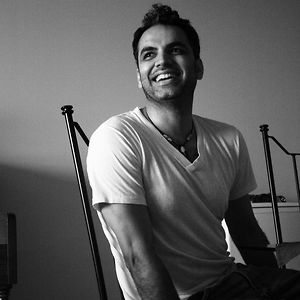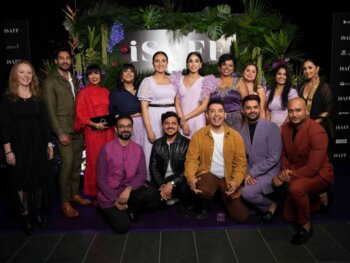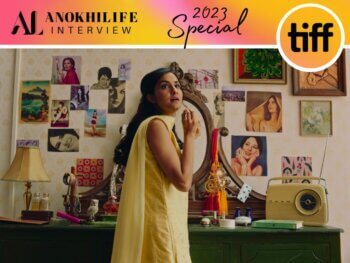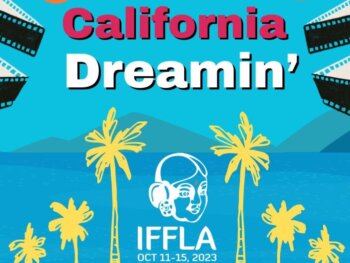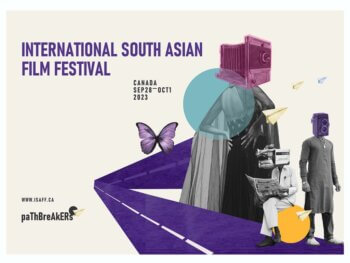Arshad Khan is a successful filmmaker who was born in Pakistan and raised in Canada. His cinema has been a catalyst for change over the years. Films like
I sat down with the filmmaker who recently screened his movie Zen at Toronto Festival and is all set to premier Doggoned at the upcoming Reel World Film Festival in April.
Swati Bhatt Vyas: Why do you choose the medium of Filmmaking?
Arshad Khan: Cinema is a great way to relate to people and represent one's world. I was tired of others speaking for me. As a South Asian and Pakistani, I wanted to have a voice that is unique and underrepresented in the mainstream media. That is what got me into films in the first place.
SBV: What is the inspiration behind your films?
AK: My work deals with issues of racism, sexism, homophobia and other kinds of social stigmas that cast out people as the 'other'.
 SBV: What has been the most uncomfortable subject you have ever come across in our society?
SBV: What has been the most uncomfortable subject you have ever come across in our society?
AK: I think child sexual abuse is a difficult subject matter and besides Mira Nair with Monsoon Wedding, I don't think the mainstream media deals with that subject well at all. Our culture is chock full of child abuse and ignorance about the rights of the young. I think South Asian cinema does not deal with sexuality very well, period. Violence is commonplace but when it comes to understanding love or sexuality, it's all missing in our cinema and our education systems. I would like to address that tastefully.
SBV: How do you feel about the human-rights in Canada?
AK: Canada is a haven for persecuted peoples from all over the world. It is a great country and we pride ourselves on our charter of rights and freedoms that protects everyone no matter what their gender, cast, creed, religion or sexual orientation.
SBV:How do you decide a concept for a film? What factors are essential in a script?
AK: Films are a laborious and meticulous art. They require planning and funding and huge resources. However, in Canada we are very fortunate to have support from several government and art councils. This funding makes a huge difference for filmmakers and what kinds of films are made. This model is very different from the US model where you need the support of commercial interest in order to make a project happen. Canadian cinema is auteur driven.
SBV: Tell us something about your film Doggoned?
AK: Doggoned recounts the predicament of so many international students who come to study in North America, fall in love with their life here only to realize they are not welcome to stay. The film is about Maria, a South Asian girl living in the beautiful city of Montreal who has just completed her education as an international student and found a great job when she gets a letter from the government telling her that her work permit has been denied. This sends her life into a tailspin as she tries to get odd jobs in order to make ends meet. Doggoned is a film about the plight of hundreds of thousands of international students who come to study in North America and spend a fortune. Yet after they graduate, their only options are either to find someone to marry, or leave the country and then apply for immigration
SBV: Tell us about the process and difficulties during the shoot?
AK: I had just returned from working on Deepa Mehta's film Midnight's Children and I wanted to exercise my directing muscles. I used a lot of what I learned on that film shoot on Doggoned. The entire production design and look of the film has been inspired by period cinema. It was an expensive film to make because I did not use digital technology but shot on Super 16 mm film gauge instead. However, when you see the film you realize it was well worth it. I made the film using crowd funding and many of my friends from university.

SBV: What does a movie like Doggoned do for you? What is your vision behind creating that film?
AK: Doggoned is my first fictional short film after film school and entirely self-funded. It is based on an urban legend. I wanted to tell an entertaining and funny tale that had a social message behind it and that would resonate with the South Asian Diaspora and beyond.
SBV: What is closer to your heart- fiction or a documentary?
AK: Filmmaking is audiovisual storytelling. It doesn't matter if its documentary or fiction. Docs are much harder to make because they usually involve a greater time factor. Having said that docs are less costly. My medium of choice has been documentary so far and now I am venturing into fiction as well as docu-fiction.
SBV: Tell us about your next project.
AK: I am working on a film called Fara about a fifteen-year-old immigrant from Pakistan who is kicking ass in Mississauga. It is a dark comedy with a lot of action and dance sequences. I think it is perfectly in tune with my style of quirky yet conscientious cinema.
Sources:
http://anokhimagazine.com/online-exclusives/arshad-khan-filmmaker
Swati Bhatt Vyas
Author
With a master’s in Journalism from Mumbai University, Swati published her first book as one of the youngest female self-help authors in India. Later in 2011, she penned her second book. Since then she has worked extensively in print, web & broadcast media in India & Canada. She c...


















































